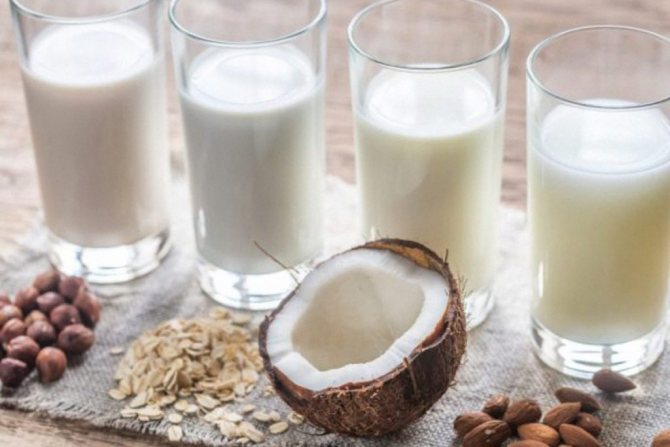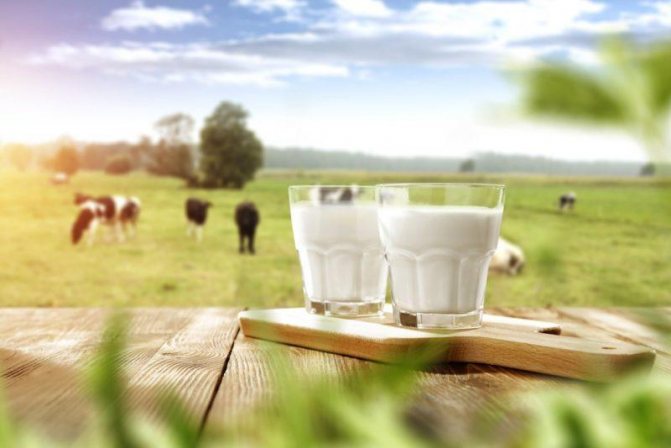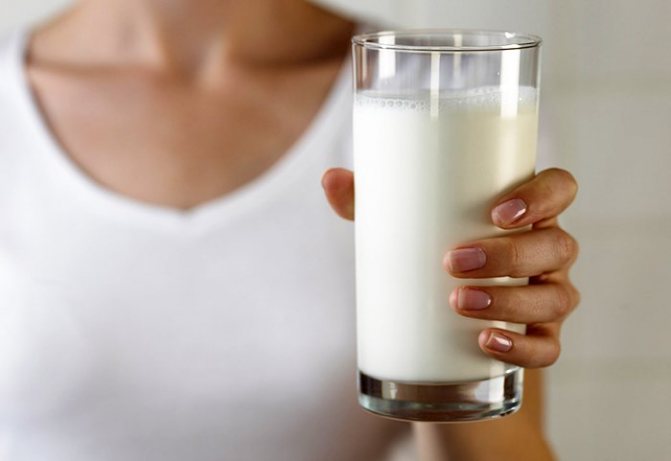Author:
gastroenterologist Anton Smirnov
4 minutes
3959
During breastfeeding, a woman may feel hungry much more often and stronger than usual, and this is normal. The process of making breast milk in the body increases daily energy requirements by about 500 calories. There is also an increased need for specific nutrients such as protein, vitamins D, A, E, C and B12, selenium and zinc.
Here are some healthy and tasty foods that you should include in your diet while breastfeeding, provided that you have no contraindications to them:
- Fish and seafood: salmon, seaweed, shellfish, sardines;
- Meat and poultry: chicken, beef, lamb, pork, liver;
- Fruits and vegetables: berries, tomatoes, sweet peppers, kale, garlic, broccoli;
- Nuts and seeds: almonds, walnuts, chia, flax and hemp seeds;
- Healthy fats: avocado, olive oil, coconut, eggs, full-fat yogurt;
- Fiber-rich starches: potatoes, butternut squash, sweet potatoes, beans, lentils, oats, quinoa, buckwheat. Note that it is recommended to introduce legumes into your diet no earlier than the baby turns three months old in order to avoid problems with excess gas formation;
- Other foods: tofu, dark chocolate, kimchi, sauerkraut.
It is also worth minimizing your consumption of fast food and sugary breakfast cereals, which can be replaced with muesli and granola, for example.
What are the benefits of drinking milk?
There is no clear answer to introducing milk into a nursing mother’s diet, but when discussing the advisability of taking such a product, we must not forget about its beneficial properties for the body:
- When breastfeeding, a large amount of calcium contained in it is considered important for women's health. After all, during pregnancy, a woman’s body is greatly depleted - hair, skin, nails do not look in the best light, and subsequent lactation only aggravates the situation. A valuable drink will help cope with the situation and replenish the necessary reserves;
- in addition to calcium, it contains enough other microelements and vitamins, for example, phosphorus, magnesium;
- Milk protein, which is necessary for the development of a baby, is well absorbed by the body (although this point is quite controversial; recently, cases of food intolerance have become increasingly common);
- Low fat milk is known for its absorbent properties. By removing excess toxins from the body, it cleanses the body, lowers the level of acidity, which is especially important when fighting heartburn;
- known to have a calming effect - a little warm drink is best for relaxing and calming before bed.
How to choose good cottage cheese
During lactation, it is especially important for a woman to be able to choose a quality product, since the food eaten affects not only the mother’s body, but also the baby. The main condition is the freshness of the product, so you must always pay attention to the production date and shelf life.
In addition, you should consider:
- Hue, aroma, consistency. The natural product has a whitish color without dark inclusions and a sour aroma. The structure should be uniform, not too liquid.
- Fat content of cottage cheese. A woman should not choose a fatty product while breastfeeding. The optimal option is 5% - 9%.
- Price. High-quality products made from natural ingredients in compliance with the necessary standards usually have a high cost. Cheapness may mean that the cottage cheese is made from low-quality ingredients.
Also, young mothers are recommended to purchase dairy products in stores equipped with special equipment to maintain the required temperature indicators. Cottage cheese can be bought on the market, but only from trusted manufacturers.
Why should you not use gw in the first month?
Despite all its advantages, especially in the first month after the baby’s birth, milk can negatively affect the newborn’s digestion and also lead to allergies. In the first few months, the child’s body is actively changing, growing, the digestive system is still forming, and milk in this case is still a very difficult product to digest. Therefore, it is recommended for a nursing mother to drink milk drinks no earlier than the third month. First, a woman should try to introduce fermented milk products into her diet; only after a correct, positive reaction should she try introducing milk. At the same time, doctors advise drinking only boiled product until the child reaches six months of age.
A breastfeeding mother can drink milk in boiled or pasteurized form no earlier than the second month after birth.
When and how to introduce milk into a mother’s diet during breastfeeding
It’s up to the mother to decide at what month to start drinking a healthy drink, but it’s definitely not worth doing this in the first month of a newborn’s life, especially since you shouldn’t drink whole milk. After this time, recommendations for introducing a new ingredient are basically the same as for introducing all other products. First, a nursing mother should try melted or boiled drinks, observe the baby’s condition for several days, and only after the third day can she drink milk again.
Portions should also be small at first, and you can gradually increase your consumption each time. But in any case, no matter how good dairy products are for babies, there is no need to consume more than half a liter in one day.
What can be replaced
Modern cooking is quite well developed, therefore, fearing for the health of the child, mothers may not drink cow's milk, but replace it with drinks of a similar composition. In any case, the vitamins and beneficial microelements it contains can be obtained from other products. As an alternative you can consider:
- goat's milk - there is much less controversy about its use during breastfeeding, moreover, it is much better absorbed by the body, its composition is in no way inferior to cow's, and for baby food it is practically hypoallergenic. Many people don’t like it for its taste, but if you purchase the product fresh, the unpleasant taste sensations will not spoil the drink;
- plant analogues - soy, almond or rice. There are several analogues from plant components, which often have a fairly balanced composition; they can replace traditional cow's milk, especially if you are allergic to animal protein. For example, soy milk is also well absorbed by the body, and contains no less useful substances - vitamins E, C, sodium, iron, plant fiber, sucrose. But it is also recommended to drink it during breastfeeding no earlier than 4 months; the rest of the time it is good to use it for preparing various dishes with the addition of milk;
- cottage cheese, cheese, kefir - any fermented milk product. If you choose products of good quality, or even better, home-made ones, then you can get even more vitamins from them;
- nuts, bread, meat, eggs or fish will also help replenish calcium and protein.

Currently, there are a large number of plant analogues of cow's milk, which make it possible to almost completely replace it in cooking.
Milk during breastfeeding

Previously, pediatricians recommended milk for breastfeeding. It was intended to stimulate breast milk production. However, in recent years it has been proven that it does not have any effect on lactation. In addition, the number of children who are allergic to it has increased. It's all about cow protein, which is a strong allergen. An alternative could be goat's milk. It is less likely to cause a negative reaction, is easily digestible and contains more useful substances. What else can you replace this healthy drink with? Is it possible to add it to tea? How to properly introduce it into your diet?
Table of contents
|
Risks, benefits and features of introducing cow's milk
An allergy caused by cow protein can be recognized by cough, nasal congestion, and skin rash. Also, intolerance to this substance can manifest as indigestion and increased colic.
Fresh milk can harm breastfeeding. It contains the hormone estrogen, which suppresses lactation.
But if you wait 2-3 hours, the hormone will be destroyed and disappear from the drink. You can also boil the liquid or use it melted.
Cow's milk is not recommended in the first month. Then, if the child does not have a negative reaction, you can enter it into the menu.
It is beneficial for the mother due to its magnesium, calcium, and phosphorus content.
These components have a beneficial effect on the nervous system, immunity, muscle and bone condition. The drink helps restore a woman’s body after childbirth.
For the first time, you should drink no more than half a glass. This should be done before lunch, and then monitor the baby’s condition for 2 days.
Cow's milk replacement options
If a child or mother reacts negatively to a drink, it is strictly forbidden to drink it. You can replace it with products containing a similar set of useful elements. Among them are fermented milk, hard cheese and cottage cheese.
Often, with an allergy to cow protein, a baby tolerates kefir well. Due to the preparation method, this allergen is practically neutralized in it.
But even if you have a good reaction to fermented milk products, you should not get carried away with them. In total, you can consume no more than 700 grams per day.
If there is a need to completely exclude dairy products from the menu, it is important to enrich it with other healthy foods. And don't forget about diversity.
Sesame seeds, almonds and rye bread are rich in calcium.
Sufficient amounts of amino acids and proteins are found in meat, fish, eggs and a number of cereals.
Broccoli and cauliflower are considered completely safe for babies. They contain many vitamins and other useful substances. In the first months, it is better to eat these vegetables stewed or baked.
If you don’t want to give up milk completely, you can drink goat milk.
You can try introducing cow's milk again. But for this you will have to wait at least two months. Perhaps by this time the baby’s body will accept it well.
Benefits and safety of goat milk
This drink does not contain alpha-1s-casein, which is found in cow's milk. For this reason, it very rarely causes allergies in children.
However, you should not drink it before the baby is 2-3 weeks old. Then you can drink no more than one glass per day.
This drink is less fatty and is easily absorbed without causing colic, increased gas formation, or digestive disorders.
Another plus is the absence of a negative effect on lactation.
Useful tips for mothers: NUTRITION FOR A NURSING MOTHER
The taste is reminiscent of cow's milk, but with a slight salty taste and a sharper smell. Unlike cow's milk, it is not customary to add it to tea.
Is it allowed to drink tea with milk?
This drink is not directly related to increasing lactation. But if you drink any kind of liquid about 30 minutes before feeding, this will make the feeding process easier for your baby.
The tea contains caffeine, which stimulates the baby's nervous system. This is especially noticeable when the baby is less than 3 months old. Caffeine also stays in the body for a long time.
At the same time, the tea itself is useful:
- has a good effect on the immune system;
- relieves blood vessels from spasms;
- accelerates milk flow during feeding;
- gives vigor and improves mood;
- normalizes metabolism;
- has a positive effect on brain function;
- promotes complete digestion of food;
- helps fight indigestion.
For a nursing mother, loose leaf tea is better. It is higher quality and contains less caffeine. You can drink green, black, white tea.
When milk is added, some beneficial properties are lost. It is better to drink the drink in its pure form and brew it lightly.
If a woman loves tea with milk, and the baby calmly accepts this drink, you can afford it. The tea should be diluted in a ratio of 2 to 1.
What does Dr. Komarovsky advise?
The doctor recommends that nursing mothers drink juices, tea, dried fruit compotes, fermented milk drinks and milk. The fat content of the latter should not be more than 2.5 percent.
When the mother has enough milk, you should not force yourself to drink a lot of liquid.
But if the child does not eat enough, you can use these drinks to increase lactation. To replenish fluid, it is enough to drink a large mug of one of them after feeding.
Cow's milk is potentially dangerous for babies. But if the child takes it well, you can drink it separately or add it to tea.
There is a way out in case of allergies - replace it with goat's milk or choose a number of other healthy products. This way, mother and baby will receive a sufficient amount of nutrients.
- about the author
- Recent publications
Arina Nagovitsyna
author of the publication (site editor)
JOURNALIST Higher education: Faculty of Journalism and Mass Communications
Arina Nagovitsyna recently published (see all)
- What can a child at 3 months - 09/12/2019
- What a 2 month old baby can do – 09/11/2019
- Which formula to choose when mixed feeding - 09/10/2019
When to start breastfeeding your baby
In order to make sure that the baby is already ripe for drinking, you need to make sure that the child does not have allergies or individual intolerance to animal protein.
You can try giving the drink no earlier than 8 months.
In this case, for the first test they give a boiled drink mixed with water. At first, one teaspoon will be enough, then they watch the baby’s reaction, if everything is fine, after a few days the portion can be increased, gradually bringing it to the maximum of 100 grams. In the future, slowly displace the water and leave only the milk. It is considered optimal to start complementary feeding with dairy products with adapted baby curds or cocktails. They will fill the child's body with necessary vitamins and normalize the microflora.
Cow's milk is a strong allergen
Cow's milk contains a lot of useful and nutritious substances that mother and baby need. However, the allergenic element alpha-1s-casein often causes a negative reaction in infants. Rash, redness, stuffy nose, or cough. In addition, it contributes to the appearance of colic and other disorders of the baby’s esophagus.

When breastfeeding, many mothers believe that milk helps increase lactation. It is a myth. Cow's milk does not increase the amount of breast milk, but fresh milk completely inhibits the feeding process due to its estrogen content. This is a hormone that suppresses lactation and is most active in fresh milk.
However, during lactation you can drink cow's milk if there is a normal amount of breast milk and there are no allergies. After all, the composition of the drink contains calcium, phosphorus and magnesium, which ensure the normal development of bones and muscles, nerve cells and immunity. This is a real elixir that will quickly restore the mother’s body after childbirth.
For the first test, drink a small amount of milk in the morning and then observe the baby’s reaction for two days. If there is no allergy, then you can drink this drink.
Doctors recommend introducing cow's milk into the diet of a nursing mother at least a month after giving birth. During this time, the baby’s body will become stronger, which will reduce the risk of intestinal disorders.

Instead of fresh milk, it is better to drink baked milk. Ghee is easier to digest and does not affect the level of lactation. If you do not like boiled drink, then wait two to three hours after receiving fresh milk. During this time, estrogen is destroyed and disappears.
Benefits for the child
Under no circumstances should you give your baby a raw product, only boiled or pasteurized milk. The latter retains all the beneficial substances, since the processing of such a product is more gentle. If a caring grandmother wants to give her child fresh milk, then she needs to be 100% sure of its quality and how clean and correctly the milking is done.
A valuable drink for a child will only be useful at the appropriate age; for infants, adult milk is replaced by infant formula, which is already enriched with all useful substances. But if, after all, the mother accustoms the baby to the usual - from a cow or goat, using purchased varieties, then you need to purchase products with the lowest percentage of fat content.
Breastfeeding mothers can drink milk, but only after a month of feeding and first you need to make sure that the child does not suffer from allergies or stomach upset when drinking it. In this case, you should choose the right variety, and it is better to replace it with goat. However, if a woman still prefers cow's milk when breastfeeding, then she should drink it boiled.
Benefits and harms
This product is high in calories, so its consumption is not advisable for people with the following diseases:
- diabetes;
- atherosclerosis;
- pathologies of the heart and blood vessels;
- excess body weight;
- fatty dyspepsia.

Only moderate consumption of dairy cream can be beneficial. It is useful for people suffering from diseases of the gastrointestinal tract to use this product, since due to its high fat content, the cream coats the walls of the stomach, preventing their irritation and inflammation. The fats contained have an easily digestible structure, so the body does not expend extra energy on their processing.











